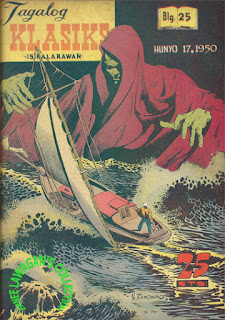JUNE 17
Events that happened on June 17:
1961 – Lapulapu, Cebu and Lucena, Quezon Province were declared cities by virtue of Republic Act No. 3134 and No. 3278 respectively.
1967 – Agusan Province was divided into – Agusan del Norte (with Butuan as capital) and Agusan del Sur (with Prosperidad as capital) – by virtue of Republic Act No. 4979.
1967 – Cadiz, Negros Occidental and Tangub, Misamis Occidental were declared cities by virtue of Republic Act No. 4849 and No. 5131 respectively.
Personalities and celebrities born on June 17:
1863 – Rafael del Pan, lawyer, journalist, politician and the first Filipino criminologist – in Intramuros, Manila (d. May 12, 1915)
1877 – Manuel Tinio, revolutionary general in the Philippine-American War, government official and politician – in Aliaga, Nueva Ecija (d. February 22, 1924)
1911 – Manuel Arguilla, literary writer – in Bauang, La Union (d. 1944).
 |
|
A view of
present-day Corregidor Island On the cover of Mabuhay (June 1994). |
Picture
Trivia
Do
you know that the island of Corregidor is shaped very much like a tadpole?
Indeed. It is a strategic island known as “The Rock” because of its rocky
landscape. During the 13th century it was occupied and used as fortress by
Chinese pirates, but they were driven out by Muslim Filipinos. For a time under
Spanish rule, it was not only used as defense fortress and penal colony, but
also as a docking station where ships had their papers inspected and “corrected,”
hence the name Corregidor, which is Spanish for “corrector.” At the onset and
during World War II, Corregidor was so saturated with bombing that the entire
topography of the island was altered. Indeed, Corregidor, which endured more
than 4,000 tons of bombs per square kilometer was the most concentratedly
bombed island in the South Pacific during World War II.

No comments:
Post a Comment